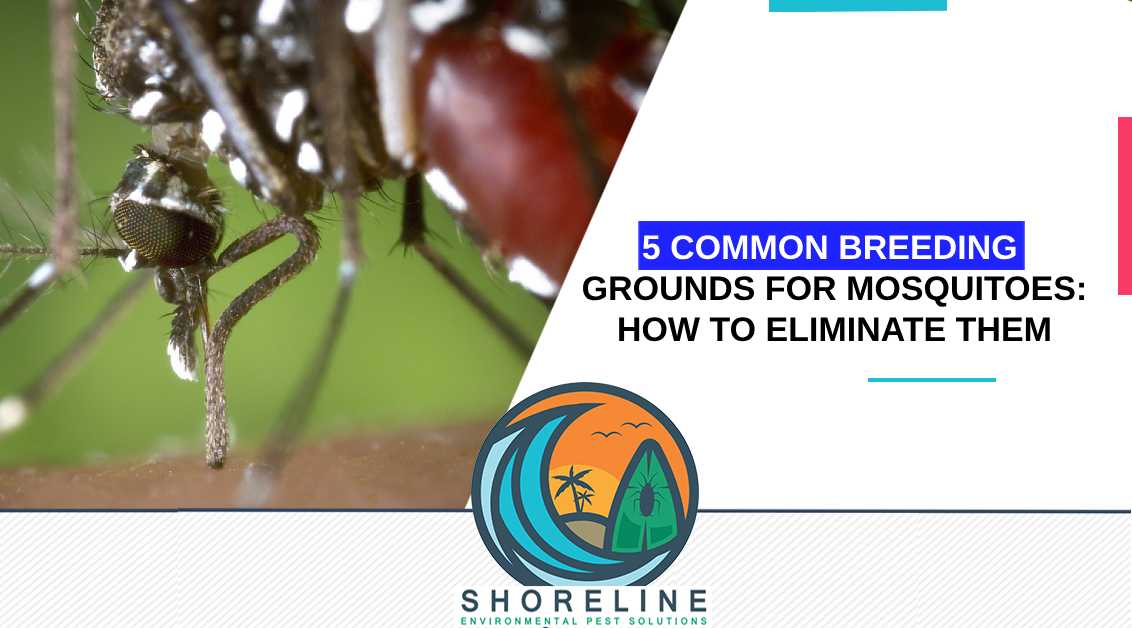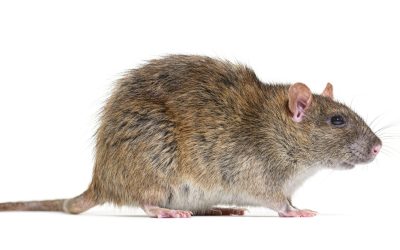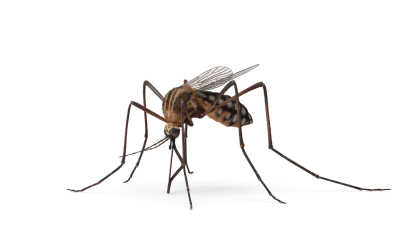Mosquitoes are infamous for their itchy bites and the diseases they can transmit. To effectively combat these pesky insects, it’s essential to understand where they breed. This guide will explore five familiar places where mosquitoes breed and provide practical solutions to eliminate these breeding grounds. By the end, you’ll be equipped with the knowledge to create a mosquito-free environment in and around your home.
Standing Water in Containers
One of the most common places mosquitoes breed is in containers that collect and hold water. Mosquitoes are opportunistic and can lay their eggs in surprisingly small amounts of standing water. This includes anything from empty pots and buckets to discarded tires and children’s toys left outside.
To eliminate this breeding ground:
- Regularly inspect your yard for containers that may collect water.
- Empty, turn over, or cover containers to prevent water accumulation.
- Store containers indoors or in a way water can’t collect in them.
Clogged Gutters
Clogged gutters can turn into ideal mosquito breeding sites. When leaves, twigs, and debris block water flow in your gutters, they create stagnant pools, providing a perfect environment for mosquito larvae.
To prevent this:
- Clean your gutters regularly, especially in the spring and fall.
- Consider installing gutter guards to keep debris out.
- Ensure downspouts direct water away from your home’s foundation.
Stagnant Ponds and Puddles
Natural ponds and puddles, if stagnant, can also become breeding grounds for mosquitoes. Mosquitoes lay their eggs on the water’s surface, and stagnant ponds provide an inviting place to reproduce.
To address this issue:
- Introduce aeration, like fountains or pumps, to keep the water moving.
- Stock ponds with fish that feed on mosquito larvae.
- Remove debris and vegetation that may obstruct water flow.
Birdbaths and Flowerpots
Birdbaths and flowerpots are common features in many yards but can inadvertently become mosquito breeding sites. Birdbaths, mainly, are attractive to female mosquitoes as they offer a convenient water source for laying eggs.
To keep these areas mosquito-free:
- Change the water in birdbaths at least once a week.
- Scrub birdbaths to remove any eggs or larvae.
- Use mosquito dunks or bits, which release a bacterium toxic to mosquito larvae, in standing water.
Overgrown Vegetation
Overgrown vegetation, including tall grasses, shrubs, and dense plants, can shelter adult mosquitoes during the day and create humid microenvironments where larvae can thrive.
To reduce mosquito-friendly environments:
- Maintain your yard by regularly mowing the lawn and trimming shrubs.
- Remove or thin out dense vegetation that retains moisture.
- Consider landscaping with plants that naturally repel mosquitoes.
Consider Professional Help:
In some cases, mosquito infestations can become challenging to manage independently. That’s when it’s wise to consider professional mosquito control services. Pest control experts have specialized knowledge and tools to assess your property, identify breeding sites, and implement targeted solutions. Here are some reasons to hire professionals:
- Comprehensive Inspections: Professionals can conduct thorough inspections to identify hidden breeding grounds.
- Tailored Solutions: They can provide customized treatment plans to address your specific mosquito problem.
- Long-Lasting Relief: Professional treatments can offer extended protection, ensuring you enjoy a mosquito-free environment for an extended period.
- Peace of Mind: Hiring experts lets you relax and enjoy your outdoor spaces without worrying about mosquito nuisances.
With these strategies in place, you can create a mosquito-free environment and enjoy your outdoor activities without the constant annoyance of buzzing and biting mosquitoes.
Understanding where mosquitoes breed is the first step in effective mosquito control. Addressing these common breeding grounds can significantly reduce mosquito populations in your area, making your outdoor spaces more enjoyable. Regular maintenance, proper water management, and mosquito control products are essential in your fight against these pesky insects. With these strategies in place, you can create a mosquito-free environment and enjoy your outdoor activities without the constant annoyance of buzzing and biting mosquitoes.





0 Comments